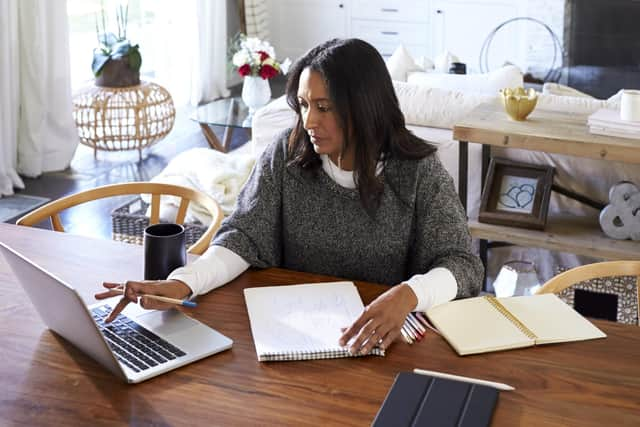Women shunning gendered business labels like 'She-EO', says report that calls for greater support of female entrepreneurship
Beauty brand Avon has unveiled the research, which surveyed more than 1,000 women in the UK, including in excess of 100 that have started their own business.
The firm discovered that women think gendered business terms such as “boss babe” as well as She-EO are, while increasingly popular, out of touch – more than a quarter said they feel patronised by such language and are annoyed men don’t have the same labels (24 per cent), which are seen as unnecessarily gendered by 22 per cent.
Advertisement
Hide AdAdvertisement
Hide AdAdditionally, gender-related stereotypes female bosses report still facing include being seen as “too emotional” (top at 39 per cent), “bossy” (35 per cent), “weak” (26 per cent) and “trying to be masculine” (18 per cent).
Nearly half of respondents believe there is less room for them to fail in the business world compared to men, and 28 per cent believe one of the largest obstacles to them starting their own business is lacking confidence, followed by fear of failure at about a quarter. In addition, two in five feel they are more likely to have their confidence knocked by failure in the workplace than men.
Avon says it has partnered with businesswoman Lydia Bright to “reframe” what it means to be a female entrepreneur in 2022, and looking at improving access to opportunities for women to become their own beauty boss.
Ms Bright, a lifestyle influencer and entrepreneur, who previously starred on The Only Way Is Essex, said: “The research shows we still have a way to go in dismantling certain barriers and misconceptions so that all women feel empowered to unleash their business ambitions, something I feel passionately about.


"Both of my parents were entrepreneurial, so I’ve always had that mindset and drive instilled in me. I’ve always felt so excited by coming up with an idea for a business and grabbing every opportunity to make it a success.
“Once I became a mum, I realised how lucky I was to be in the position of working my own hours and having the flexibility to juggle both work and childcare.”
Crucial
Avon added that despite a lack of confidence affecting women deciding to start their own business, its research revealed that half of those surveyed believe failing is a crucial part of success, with the same proportion agreeing that it humanises leaders, making them more relatable.
Tracey Powers, UK sales director for Avon, said: “We’ve been championing women for more than 135 years to become their own bosses, but our research shows there is still more to do to improve access to opportunities, break down barriers and enhance the perception of women in business.
Advertisement
Hide AdAdvertisement
Hide Ad“As more people seek flexible earnings opportunity due to the ongoing cost-of-living crisis, we’re seeing a real reappraisal for [our kind of] direct selling model, allowing you to be in control of your own success and progression.
“At Avon we continue to celebrate acts of entrepreneurship in all forms – from the spirit it takes to start out, to the everyday resilience women possess that helps them become their own boss.”
Comments
Want to join the conversation? Please or to comment on this article.
